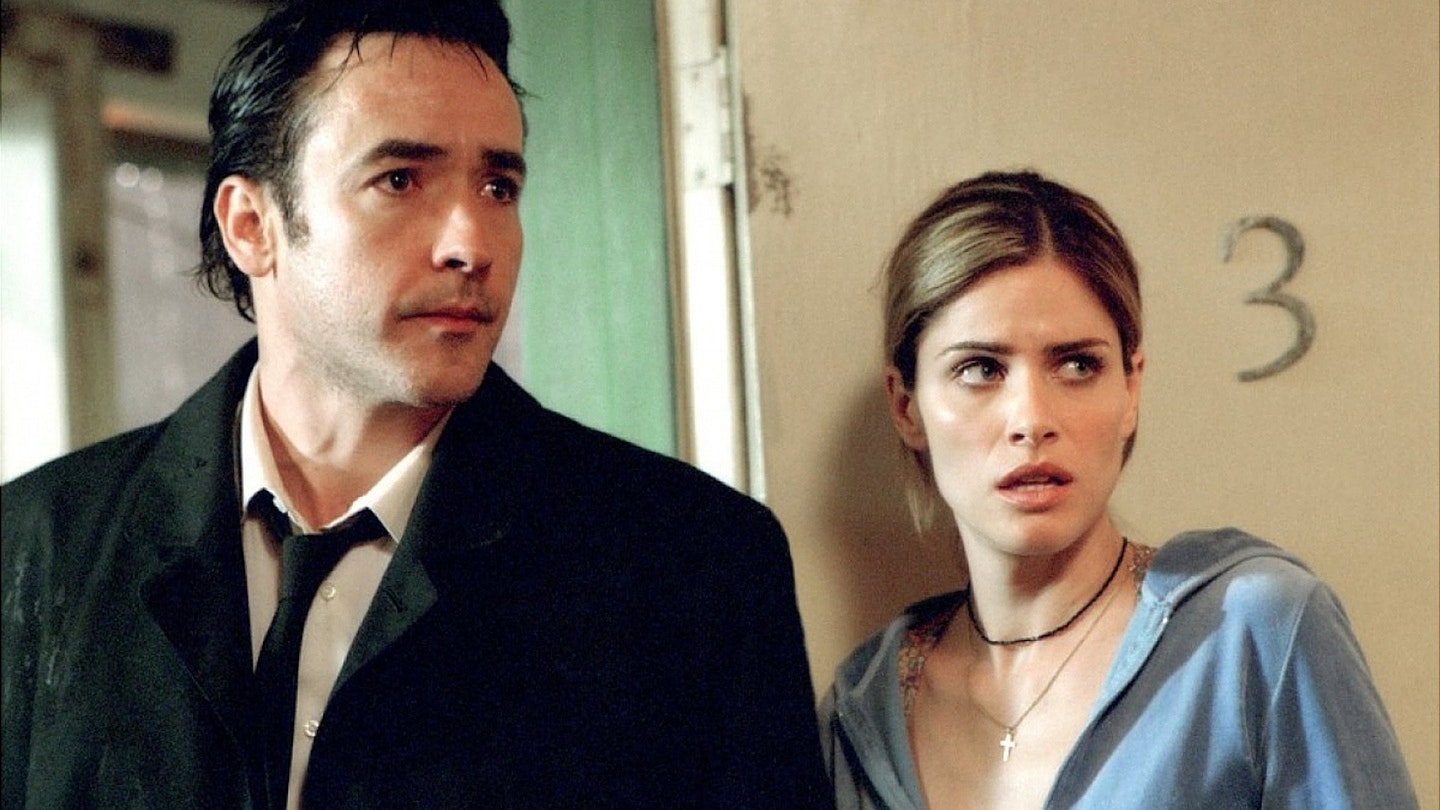In 1997, James Mangold directed and wrote Cop Land, the acclaimed police corruption movie that was also notable for an impressive performance by a bloated Sylvester Stallone.
With Girl, Interrupted and Kate & Leopold as follow-ups, Mangold withdrew from the A-list limelight as quickly as Sly's girth and career comeback. However, Identity's murder mystery motif - on paper, at least - marks Mangold's return to more enticing projects.
The majority of Identity's narrative unfolds as a standard whodunnit, with a killer reckoned to be amongst a group, while each member exhibits enough dubious behaviour that our finger of suspicion can never hold its conviction for long. A checklist of claustrophobic elements (pitch-black night, continual downpours, blocked roads) heightens the unsettling atmosphere of the secluded location, which is reminiscent of the eerie Bates Motel in Psycho. The roles are one-dimensional, but the combo of Cusack and Liotta proves a shrewd move, as Hollywood's resident Mr. Smooth and Mr. Shifty, respectively, contest for dominance of the group. A further nod to Hitchcock commences the slayer's countdown and, after much bloodshed, a correlation between victim and their allocated room number is unearthed. But despite the guests knowing when their number should be up, the pattern intriguingly continues.
Of all the secrets disclosed, it is the film's conceptual revelation that is the most startling. Very late on, as the puzzle of the common bond between the characters is solved, a surreal plot twist comes to light. The plausibility rests on successfully shoehorning into the mix an extremely complex philosophical theory regarding consciousness. It fails. Throughout the film clues are seldom, and so we are not dazzled as with, for example, the clever deception of The Usual Suspects. Instead, we experience an intense reaction of betrayal.
In many ways, Identity aspires to be a more intelligent movie than most could ever comprehend; but at face value, it appears as an impudent con.
